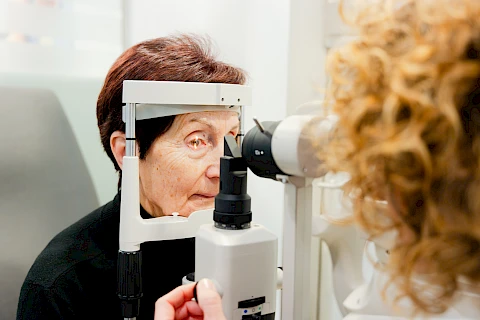
For seniors living with diabetes, maintaining good eye health is a must. One of the most common complications affecting eye health is diabetic retinopathy. Understanding this condition can help seniors and their caregivers take action to protect their vision. We want to educate seniors and their caregivers about diabetic retinopathy, the importance of regular eye exams, managing blood sugar levels, and recognizing early symptoms.
What Is Diabetic Retinopathy?
Diabetic retinopathy is an eye condition that affects the retina, which is the part of the eye responsible for sensing light and sending signals to the brain. When blood sugar levels are consistently high, it can damage the blood vessels in the retina. This damage can lead to vision problems and even blindness if not managed properly. Among seniors, diabetic retinopathy is alarming in its prevalence. According to studies, it affects nearly one-third of people over 40 with diabetes, making it an issue of vital concern.
Why You Need Regular Eye Exams
Regular eye exams are necessary for early detection of diabetic retinopathy. These exams can reveal changes in the eye before any noticeable symptoms appear, enabling timely intervention. For seniors with diabetes, it is recommended to have a comprehensive eye exam at least once a year. These routine checks help to prevent vision loss. By catching problems early, seniors can take steps to protect their sight and maintain quality of life.
Managing Blood Sugar Levels
Keeping blood sugar levels in check is a cornerstone of eye health for individuals with diabetes. When blood sugar is well controlled, it greatly reduces the risk of developing diabetic retinopathy. Seniors can manage their blood sugar levels by:
- Following a balanced diet rich in fruits, vegetables, and whole grains
- Exercising regularly to maintain a healthy weight and improve circulation
- Monitoring blood sugar levels and taking prescribed medications as advised by a healthcare professional
By adopting these lifestyle habits, seniors can significantly impact their eye health and overall well-being.
Recognizing Early Symptoms
Recognizing the early symptoms of diabetic retinopathy can lead to timely treatment and better outcomes. Common symptoms include blurred vision, floaters, dark areas in vision, and difficulty perceiving colors. Early detection is key, as treatments are most effective when the condition is caught before significant vision loss occurs. Seniors and their caregivers should seek medical advice if any of these symptoms are noticed, ensuring a swift response to any changes in eye health.
Working With Your Healthcare Team
Collaborating with healthcare professionals is part of managing diabetic retinopathy. A coordinated care approach involving eye doctors, endocrinologists, and general practitioners can provide comprehensive management of both diabetes and its complications. Open communication is vital; seniors should feel empowered to discuss concerns and treatment options with their doctors. Regular check-ups and ongoing management plans tailored to individual needs can preserve vision and enhance quality of life.
Protecting Vision for the Future
Diabetic retinopathy is a serious eye condition that requires attention for seniors living with diabetes. Regular eye exams, effective blood sugar management, and awareness of early symptoms are key factors in preventing and managing this condition. Seniors and their caregivers are encouraged to prioritize eye health and work closely with their healthcare team to safeguard their vision. For support and resources in Greensburg, Jeanette, Irwin/North Huntingdon, Latrobe, Monroeville, Murrysville, Export, Delmont, and Mt Pleasant, contact Senior Helpers Greensburg. With the right precautions, seniors can continue to enjoy a bright future. Taking charge of eye health today leads to a healthier tomorrow.